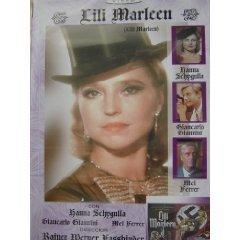“I’m a lady of easy virtue.”
Lives intersect and create permanent changes in the wonderful film The Edge of Heaven (Auf Der Anderen Seite) from writer/director Fatih Akin. Akin was born in Germany but is of Turkish descent, so his films provide a unique cross-cultural view of the lives of Turks living in Germany.
 The film begins in Germany with elderly Turkish widower immigrant Ali (Tuncel Kurtiz) visiting the red light district of Bremen and selecting prostitute Yeter (Nursel Kose). With her vinyl mini-dress and blonde wig, Yeter doesn’t seem the cozy type, but Ali is drawn to her. After a few encounters he suggests that she move in with him, and she accepts. She has few other choices at this point–she can’t stay in the red light area as she’s been identified and threatened by fellow Turks, so she moves in with Ali.
The film begins in Germany with elderly Turkish widower immigrant Ali (Tuncel Kurtiz) visiting the red light district of Bremen and selecting prostitute Yeter (Nursel Kose). With her vinyl mini-dress and blonde wig, Yeter doesn’t seem the cozy type, but Ali is drawn to her. After a few encounters he suggests that she move in with him, and she accepts. She has few other choices at this point–she can’t stay in the red light area as she’s been identified and threatened by fellow Turks, so she moves in with Ali.
Add Ali’s son Nejat (Baki Dvarat) to the picture–he’s a university professor of German, and no doubt while he’s a success by cultural and societal markers, there’s something wrong…we see a scene of Nejat sitting in his messy office. Is he bored out of his mind or just contemplative? Another scene shows him listlessly lecturing students, so without explicit narrative or plot development, it seems clear that Nejat has ‘succeeded’ in German society, but he’s not thrilled about it.
Nejat doesn’t object to his father’s new housemate–in fact Yeter and Nejat have an excellent relationship. And this is in contrast to Ali’s relationship with Yeter. While he couldn’t wait for her to move in and promised to pay her, things quickly turn sour.
Circumstances take Nejat to Turkey and he begins a search for Yeter’s missing daughter, Ayten (Nurgul Yesilcay). The film takes us through Ayten’s story and activities in a revolutionary group. Seeking asylum in Germany, Ayten becomes involved with a German girl, Lotte (Patrycia Ziolkowska) and Lotte’s mother Susanne (Hanna Schygulla).
The Edge of Heaven is a wonderful film, and if I’ve managed to make it sound confusing, it really isn’t. The story threads are very well woven, and although the characters are connected, the viewer retains the knowledge of those connections–we have knowledge of those relationships that eludes the characters.
Watching The Edge of Heaven, I was reminded of Ozpetek’s wonderful film Haman (Steam: The Turkish Bath)–a film that also shows the exoticism and the dangers of Istanbul. Just as the main character in Steam, Francesco, is beguiled by Istanbul, Nejat is similarly entranced. There’s one scene where he walks into–of all things–a German book shop. There it is, apparently waiting for him. He steps inside and with a sense of quiet wonder he scans the shelves and silently logs the titles….
There’s a lot happening in this film–cultural identity, loss, redemption and the relationships between parents and their children who learn to accept loss and forgive errors and crimes. This is the best Akin film I’ve seen to date (In July, Head-On, and The Edge of Heaven).




You must be logged in to post a comment.